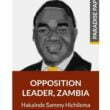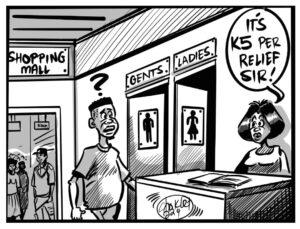Oxfam Zambia has observed that government’s failure to take action against individuals cited to have mismanaged the country’s resources is the cause of sustained inequality and an obstacle to poverty reduction.
Commenting on the revelations in the Paradise Papers, Oxfam media and communications liaison office Malama Mwila complained in a statement that there was seldom any legal action taken against corporations and individuals who are accused of evading tax.
“The Paradise Papers like the Panama Papers have yet again exposed the iniquities of tax havens. Zambia like several other African countries, has not been spared the injustices and harmful impacts of tax dodging. A media sweep on broader issues of transparency and accountability in Zambia shows that mismanagement and corruption are hardwired in the country’s financial and procurement systems. This is in addition to the shocking annual Auditor General’s revelations of a wasteful and inefficient public service. These malpractices are compounded by a lack of prioritisation in how the country’s meagre public resources are used,” Mwila stated.
“A case in point is the procurement of fire tenders, ambulances and the construction of the Lusaka-Ndola dual carriageway. Citizens are frustrated that recurrent scandals and abuses fizzle out with little repercussions for perpetrators. Seldom has there been any kind of legal consequences for most of these corporations and politically exposed individuals in and outside government responsible for mismanagement of the nation’s resources. The iniquities and implications of such a damaging and rogue system are widespread and immense. These abuses are both the root of sustained inequality and an important obstacle to poverty reduction. For instance, a staggering 30 per cent of rich Africans’ wealth – a total of US$500 billion – is held offshore in tax havens. These rich Africans are using the global network of tax havens to hide about US$14 billion a year in taxes. At the same time, corporations have been estimated to prejudice Africa of US$38 billion annually in lost tax revenues.”
Mwila regretted that high net worth individuals and corporates were taking advantage of the porous taxations systems to deprive government of due taxes which left the poor people to pay the price.
“These figures when taken together with other resources lost illicitly, dwarf the annual aid flows to Africa. Such revenue losses compound problems of mounting and unsustainable debt, tightened spending on health, education and social protection. The implications this has on the poorest in society especially on women and girls who are often left to pick up the pieces own their own are significant. When the public financial and procurement systems are dysfunctional; high net worth individuals and corporates take advantage of porous taxations systems to deprive government of due taxes, public resources are lost to corruption and it is the poorest people that pay the price. Poor people’s tax bill rises as government tries to bolster tax revenues, and with little public support the poor must dip into their own pockets to access essential services like health and education,” he stated.
Mwila called on government to close up all tax leakages by revising reforms especially those dealing with tax havens and offshore jurisdictions
“The sense of impunity is dramatically affecting citizens’ trust in the rule of law and role of the State. It is also in the country’s interest to safeguard some economic gains recorded over the years. Government needs to close tax leakages. This could be done by ensuring tax reforms that make tax systems more water-tight and by re-considering tax incentives, double taxation agreements (DTAs) with tax havens and offshore jurisdictions. Prevention of wasteful and irregular public expenditure should be a top priority for government as part of its strategies for poverty and inequality reduction,” stated Malama












